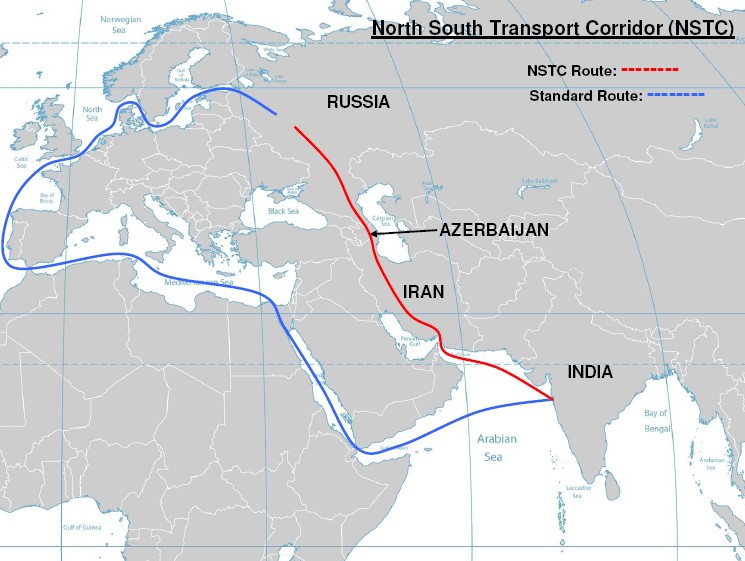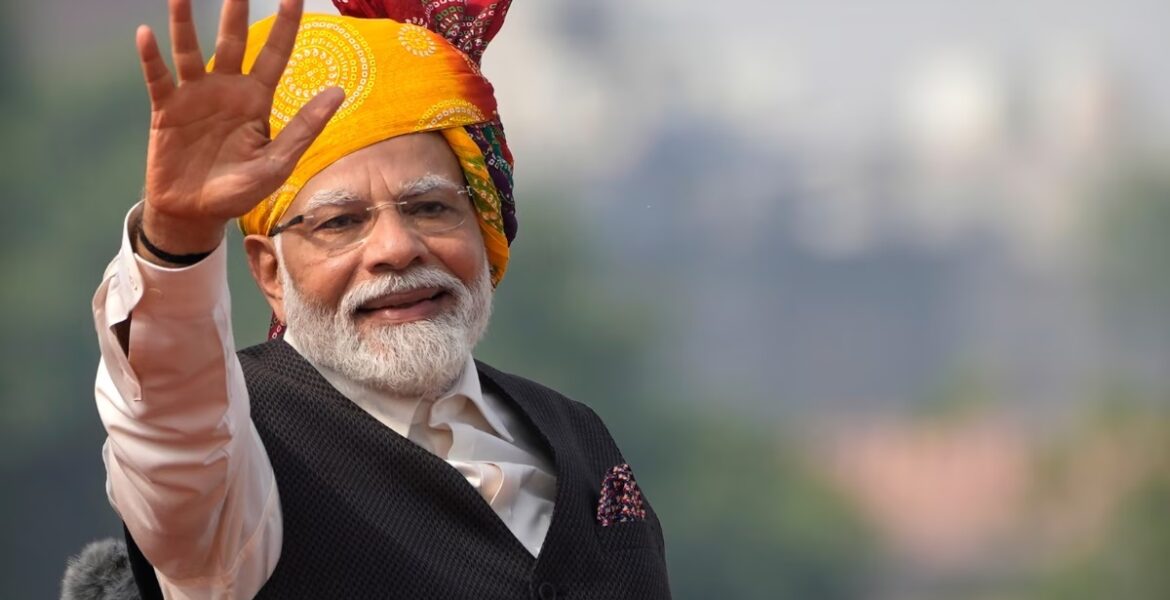As the long 56-year cycle of the economy changes in 2024, it will become increasingly apparent that India will emerge as a powerful force threatening China, which developed in the previous cycle.
China has been occupying India on its northern border to divert resources from developing its own Silk Roads, mainly in the Indian Ocean. To its west, India is cut off from Pakistan (its eternal enemy), where China has developed the most expensive part of its Silk Road (cost over 50 billion), which gives it access across Pakistan to the port of Gwadar (in the area of Balochistan).
The recent laying of the "New Indian Silk Road" through Saudi Arabia, Jordan, Israel, and Piraeus to gain access to the European market was suspended due to the events in Gaza.
India's access through INSTC

India's access depends on the International North-South Transport Corridor (INSTC), which, via Iran (Chabahar port) and the Persian Gulf, aims to connect the Indian Ocean to Russia and from there to the E.U.
Indian goods by sea from Mumbai, the financial centre of India, go through Iran's Chabahar port and therefore bypassing Pakistan, and then to Russia and from there to Europe. However, after Russia invades Ukraine, there is no access to the European market.
If INSTC did not exist, goods would have to follow the blue line on the map through the Suez Canal from Gibraltar, the English Channel and the Baltic Sea to reach Russia.
India depends on good relations with Iran to use the INSTC corridor to access Russian and Central Asian markets. So, India should not clash with Iran's ambitions to become a dominant regional power.
Also, if the Houthis, in addition to Russian and Chinese ships, also allow Indian ships to enter the Red Sea, India will at least have access to the EU, and its economy will be able to grow.
India's foreign policy
India has stepped up its presence in the Arabian Sea and the Gulf of Aden, deploying ships and reconnaissance aircraft, and even intervened in an incident involving a boat targeted by the Houthis. India has historically maintained close relations with Iran, which it has managed to combine with strengthening ties with the US, Israel, Saudi Arabia and the United Arab Emirates.
India's stance is more complex than a simple alliance with the US against Iran. Pursuing an independent foreign policy, it decided not to join the US-led multinational coalition to protect international shipping announced by Washington. India also did not support US airstrikes against the Houthis.
Instead, India is looking for ways to become an independent security actor in the Arabian Sea, a role that may allow it to gain a strategic advantage over China.
In this region, Turkey believes it is time to play a role with the huge naval fleet orders it announced. Its fleet will be too large as it does not control the Aegean, which is one of the most strategic points to be able to "choke" the straits of the Hellespont, the Bosporus and the Sea of Marmara.
Such a fleet in the Aegean but even in the Eastern Mediterranean could immediately sink into a conflict with Greece. The
fleet is planning to try to convince the West that it will be able to ensure stability in the region of Eritrea, the Arabian Sea, etc..
However, India will have to prevent Turkey, China, or the Houthis from gaining influence in this region. The development of the Chabahar port indicates India's strategy as it allows it to bypass Pakistan and strengthen its trade ties with the rest of Central Asia.
At the same time, India announced plans to upgrade its navy significantly, proceeding with major reforms of its armed forces.
The opportunities for Greece
The development of the sea route of the Indian trade through the Suez Canal and the prospect of a "New Indian Silk Road" indeed opened important opportunities for Greece, especially in the context of pacification and stabilisation in the region.
Greece, with its strategic location and developing ports and transport networks, can act as a central hub for Indian goods transiting through the Suez Canal, thus helping to strengthen the supply chain and trade relations between Greece, the EU, and India with very significant economic benefits.
Greek ports, such as the port of Piraeus, have already demonstrated their ability to act as major gateways to the European market. Further strengthening of infrastructure and improvement of accounting and logistics processes could make Greece an even more efficient centre for the management of freight flows.
For Greece, this would mean strengthening its trade and logistics hub position, leveraging its geographic location and improving its economic dynamics.
The decision-makers in Greece need to recognise and take advantage of this opportunity, developing the necessary strategies and investing in the corresponding infrastructures after the peace in the region. Such an approach would be vital in strengthening the national economy and expanding our international trade presence.
—-
Georgios Atsalakis is an Economist and Associate Professor at the Technical University of Crete, Data Analysis and Forecasting Laboratory.
READ MORE: Turkish military expert proposes flooding Greece with illegal immigrants to stop F-16 upgrades.


